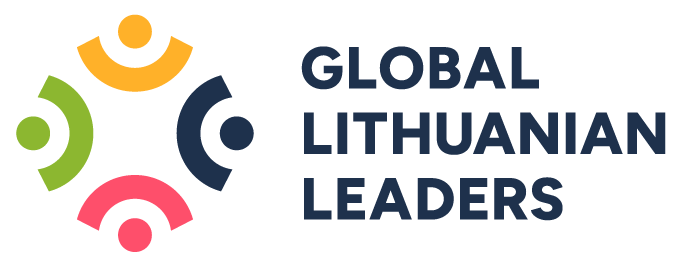After the World Lithuanian Economic Forum the leading Lithuanian experts from all over the world participated in the brainstorming session, organized by “GLL / Global Lithuanian Leaders”, which goal was to prepare a plan how to lower a suicide rate in Lithuania and raise the general Gross National Happiness Index of Lithuanian.
Low happiness index rate and high suicides number in this year World Lithuanian economic forum were pointed as some of the biggest Lithuania’s problems which are reasons to emigrate from the country as well as an obstacle for successful growth of Lithuanian economy. This lead to separate event to address these problems.
GLL brought together the initiative group with famous change innovator from Columbia, Dr. Antanas Mockus as the main patron. Together participants created an action plan how until 2016 to lower a suicide number in Lithuania at least by one third. It would mean, that in 2016 370 young and middle aged people would be saved. According to current statistics every year in Lithuania 1100 people take their own lives.
“A Columbian must be protected from other person. Lithuanian – from himself,” Dr. A. Mockus pointed as a main difference between the two states. During his double term as mayor of a 7 million population Bogota, he significantly lowered the number of murders. He compared the numbers, stressing, that in Columbia the ratio between a suicide and homicide is one to seven. In Lithuania it is opposite – five suicides to one homicide. In his opinion the main reasons for such self neglection and violence is the feeling of guilt, inability to express the inner suffering and seek for help from professionals or religion.
The brainstorming session gathered other successful Lithuanian leaders from various countries. Ruta Laukien is a investment company manager in Boston. Francisco Ricardo Blazevicius founded an IT company in Brazil, which employs 3000 people. Gediminas Urbonas is an associate professor of Massachusetts Institute of Technology. From Lithuania – local businessmen and international business managers as Dr. Vladas Lasas, Mindaugas Glodas, creative and IT industries managers Tomas Ramanauskas and Darius Bagdziunas, mayor of Jonava district Mindaugas Sinkevicius, psychiatry professor Dainius Puras, director of “Jaunimo linija” Paulius Skruibis, architect and social activist Algirdas Kauspedas, “Transparency International” former and current managers in Lithuania Sergejus Muravjovas and Rytis Juozapavicius, GLL board members Dalia Petkeviciene and Tadas Langaitis.
“Emigration is one of the valves for people to release the accumulated emotion,” P. Skruibis told. According to him, emigration helped to lower the suicide number in Lithuania in recent years.
“Lithuania is known not only for high number of suicides, but also the lack of strategy how to lower this rate. Currently people are prescribed with antidepressants; even 80 percent of national funding for psychic health goes to psychic health institutions. Such actions, obviously, doesn’t work,” prof. D. Puras told, stressing, that medical system is not enough for solving the problem. Professor mentioned other obstacles, such as the alcohol, which is responsible for three quarters of suicides. This problem is especially evident in the rural areas and for example Kupiskis district, which has highest suicide rate, does not have a single practicing psychiatrist. In D. Puras opinion, it is necessary to involve the society to achieve any change.
The leaders from business and public sectors offered various ideas to start the social action for happier country, catch the public and government attention and show that there is no more time for passive waiting.
One of the proposals was to initiate the “Contract against suicide” campaign. The person would sign such contract with his relatives and promise not to take his life together with personal action plan how he would act in a difficult situation. P. Skruibis promised to implement this proposal.
Other proposed campaign was “For the right to smile in documents”, the responsibility for it took Dr. V. Lasas. The goal is to change the established procedure that forbids smiling in Lithuanian document photos. It’s a big difference compared, for example, with American passports – in Lithuania the positive emotion is repressed by force. The participants called to action to change such order. “We have to spread smiles and happy country culture in Lithuania. It is obvious that today the culture of seriousness is dominant even in the juridical requirements. Sometimes even such small details could lead to big changes in the country,” Dr. V. Lasas, chairman of „GLL Global Lithuanian Leaders“ board told.
A. Kauspedas took responsibility for the initiative to create and expand the “live” public areas, to establish so called “playgrounds for adults” and promote a social life in cities and regions. Even to create and adapt regions’, districts’, streets’ happiness indexes and make a competition for the highest rates. The proposed start would be Lukiskiu square, which would be transformed to the place of happiness. MIT professor Gediminas Urbonas and Sergejus Muravjovas offered to help with this campaign.
Microsoft health solutions director for Central and Eastern Europe Mindaugas Glodas offered to help providing technological means to establish psychological helpline services at volunteers’ homes. Such idea would help to address a problem, that in Lithuania the helpline services get 10 times more calls than the volunteers can serve currently working in the centers.
Some projects, addressing the mentioned problems have already started. Interactive audience survey system IQ Polls developers from 1st of July started an interactive social project Happy Barometer Vilnius – www.happybarometer.com. This project is dedicated to promote people to express their good emotions and measure citizens’ happiness level. Other Lithuanian and foreign cities are invited to join the project.
All the participants of the session unanimously decided that it is necessary to create and approve the national program “Let’s not lose any person”, which aim to involve communities saving more lives.
